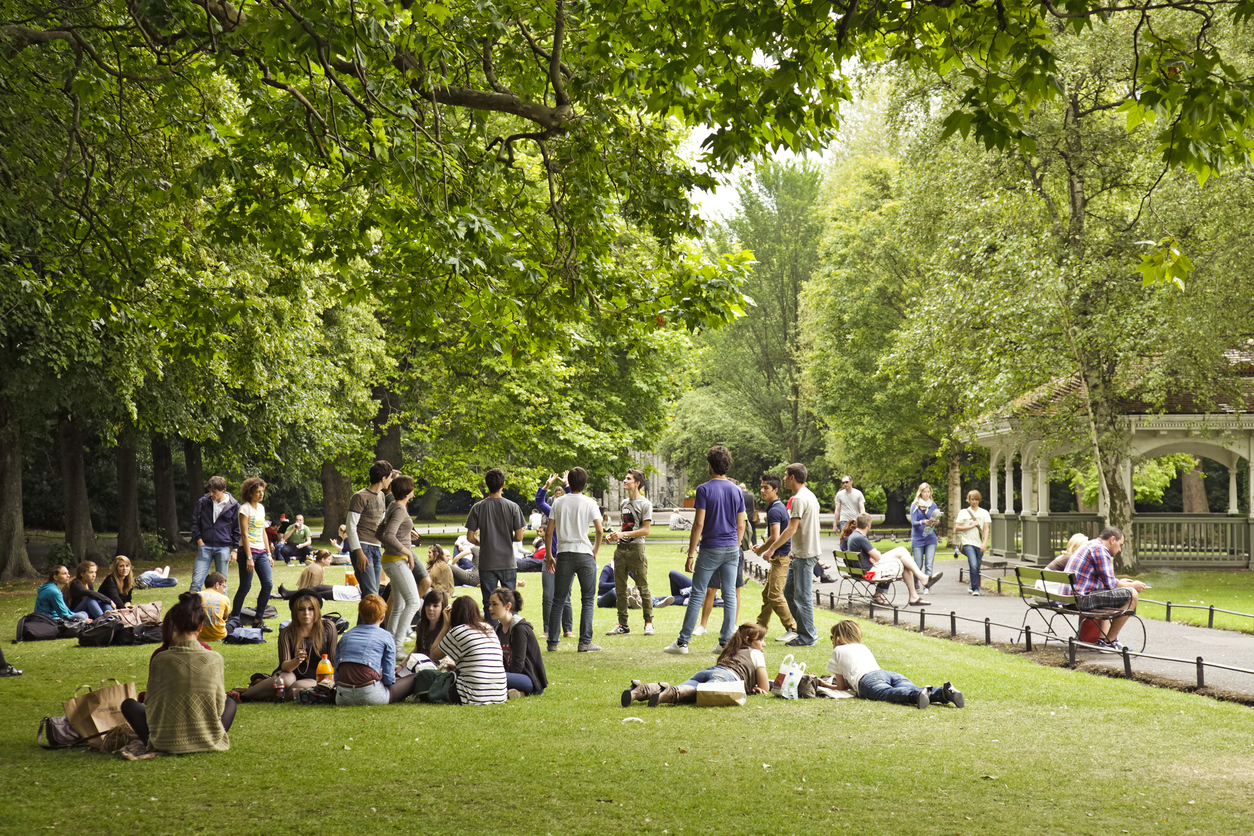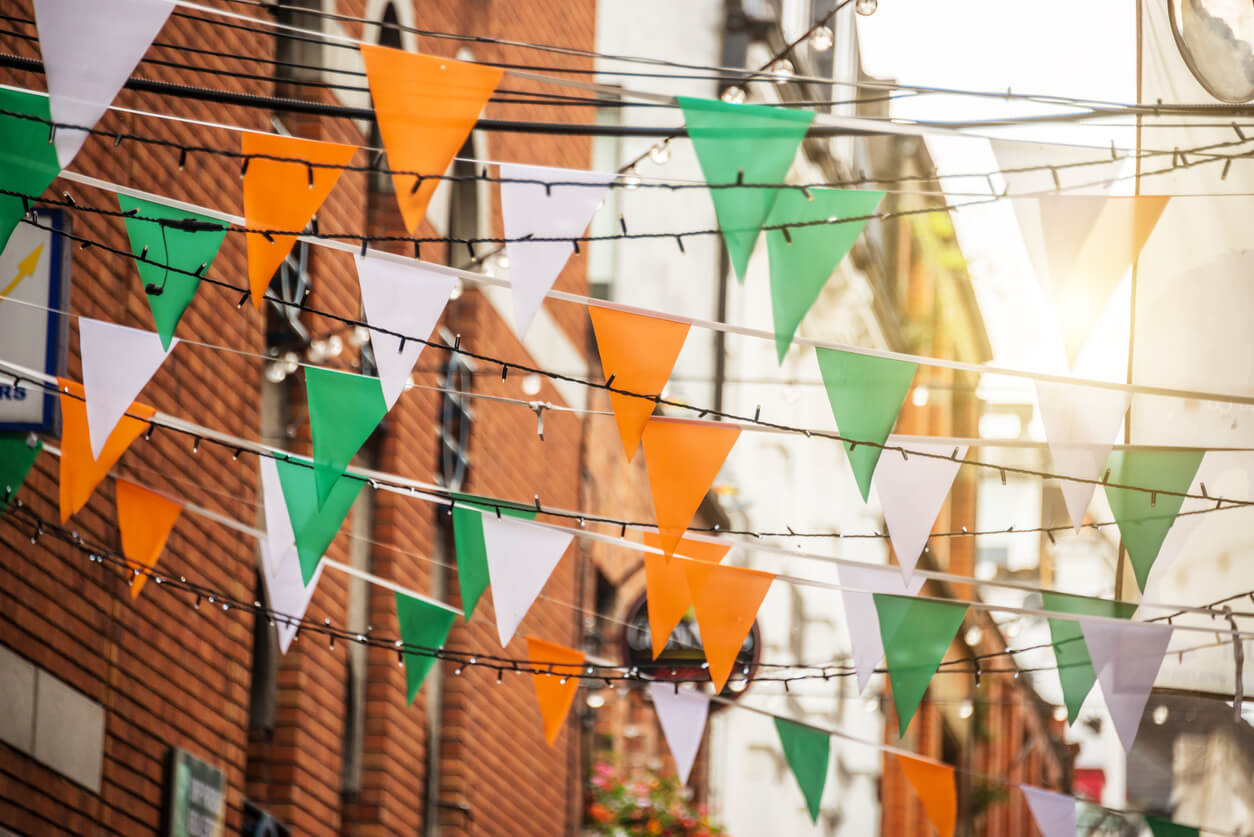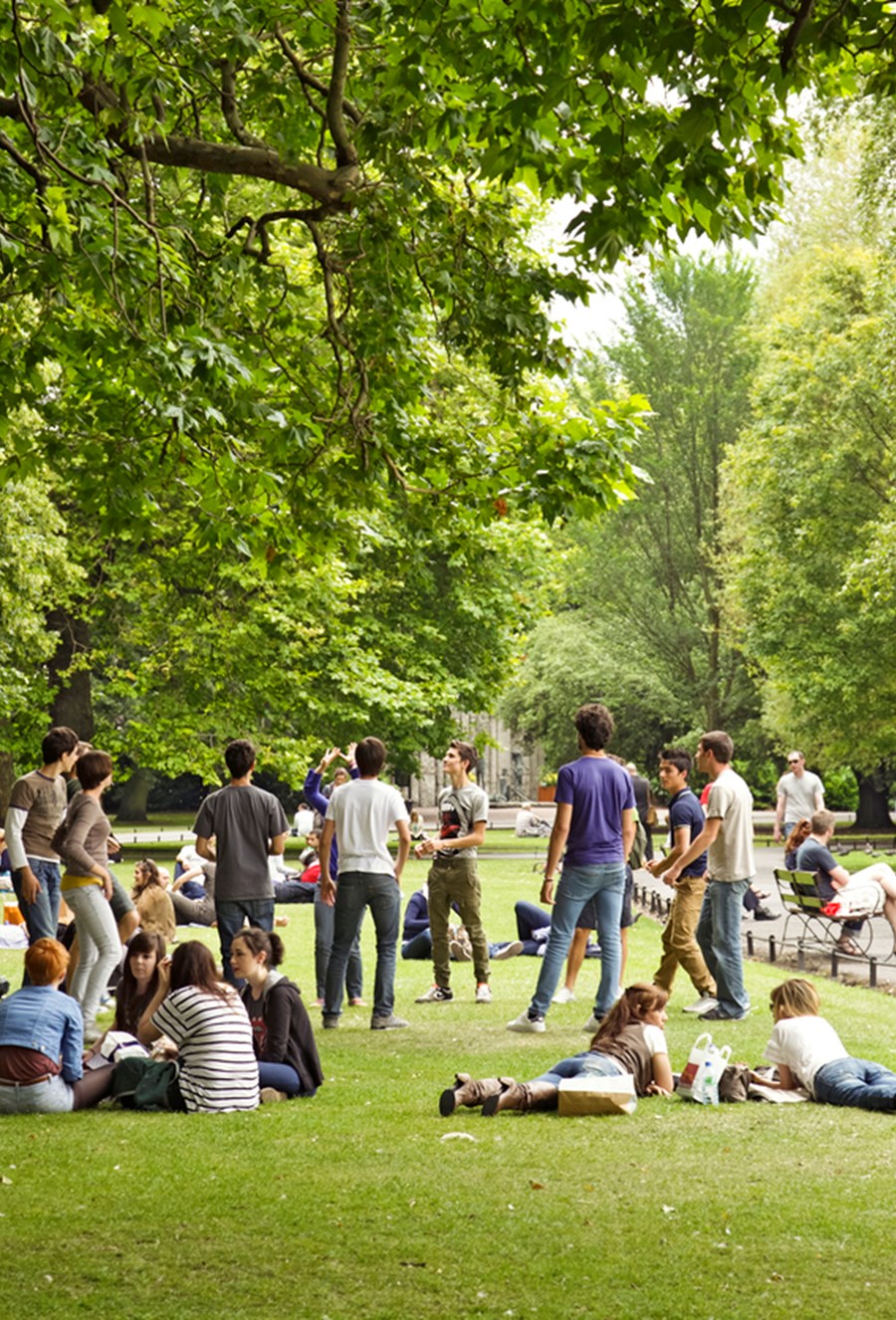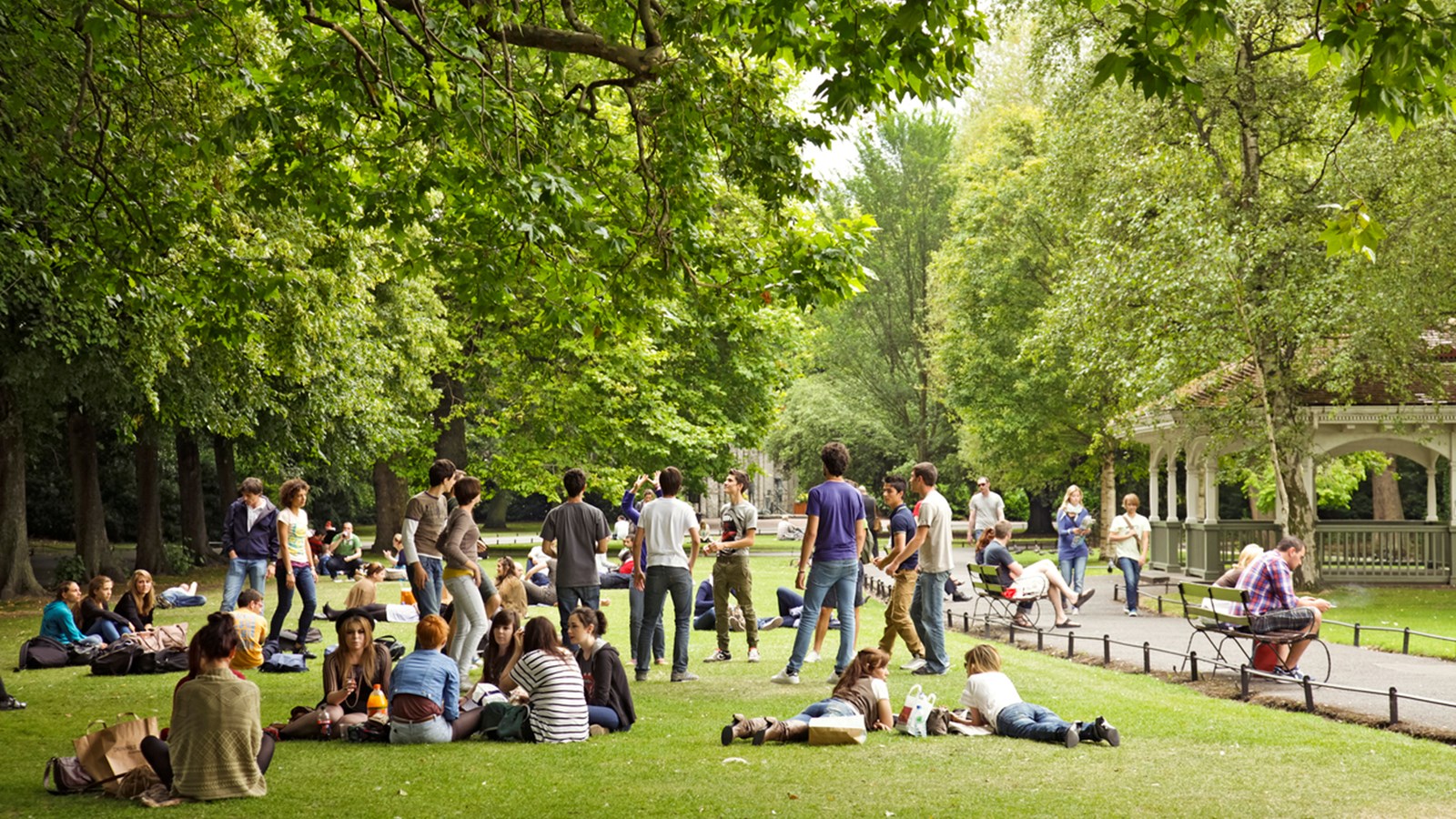International Student Guide: Studying in Ireland
22 March 2018
There are some slightly different laws in Ireland, as well as minor cultural differences. So, if you are planning to study in Dublin, this page will provide the additional information you’ll need during your time in Ireland.

Ireland has a growing community of international students, each drawn to the shores of the Emerald Isle by quality education, captivating scenery and the promise of a warm Irish welcome. And, as large corporations such as Google and Microsoft continue expanding their operations here, it’s likely that Ireland will continue to flourish as a world-leading centre of learning for years to come.
If you’re moving to Ireland to study, you’ll be joining 35,000 international students from over 160 countries who choose to study at one of the country’s leading universities each year. But before you get here, there are a few things you need to know – from applying for the right student visa to finding the most affordable place to do your grocery shopping.
Read our complete guide to studying in Ireland as an international student below or use the links to quickly navigate and find the information you need.
Quick Links
- Visa and Immigration Requirements when Studying in Ireland
- Healthcare, Banking and International Calling
- Working while Studying
- Shopping and Discounts
Visa and Immigration Requirements when Studying in Ireland

Before You Arrive
If your course lasts longer than three months and you’re travelling from outside the EU, you will need to apply for a visa to study in Ireland. Study visas are granted by the Irish Naturalisation and Immigration Service, and you can apply for one up to three months before your date of travel to Ireland.
To obtain an international student visa, you must apply online via the INIS application portal. Here, you will also find information on the supporting documentation you’ll need to provide as part of your application, as well as details of the various fees you’ll need to pay in advance of travelling to Ireland.
Generally, visa applications take up to eight weeks, so it’s important to start the process early to make sure everything is in order before term starts. We’d advise you don’t purchase any travel tickets or make any transport arrangements in Ireland until you know the outcome of your visa application.
After Your Arrival
When you reach Ireland, an immigration officer will check the details of your visa and may ask you to show supporting evidence of your right to study in Ireland, such as a bank statement or a letter of endorsement from your chosen institution. They’ll then stamp your passport, showing the date that you arrived in the country.
When you reach campus, you must register with the INIS in order to receive your GNIB (Garda National Immigration Bureau) card, which is your permit to reside in Ireland for the duration of your studies. The fee for this card is currently €300, but this is subject to change.
The easiest way to register with the INIS is to make an appointment with the international student registration team at the university, who will guide you through the application process.
Healthcare, Banking and International Calling

When settling into your new life in Ireland, there are a few things you’ll need to organise before immersing in your studies. In this section, we offer guidance on arranging healthcare, opening a bank account and making international calls in Ireland, so you can better manage and organise your student life.
Healthcare
If you’re travelling to Ireland from within the EU and have a valid EHIC (European Health Insurance Card), you’re entitled to receive free healthcare during your tenure in Ireland. Be advised, however, that you may need to pay for treatment and medicines upfront, before claiming these costs back at a later date.
All non-EU international students will need to obtain private health insurance in order to receive healthcare in Ireland. The INIS visa service offers information on the process of finding health insurance in Ireland, as well as a list of recommended providers. On average, health insurance for international students costs around €100 – €120 per annum, so remember to factor this cost into your budgeting.
Opening an Irish Bank Account
The easiest way to manage your money while studying overseas is to open a bank account when you reach Ireland. In order to open a new student account after you arrive, you’ll need evidence of your permanent address in Ireland, as well as confirmation that you’ve registered on your university course.
To open an Irish bank account as an international student, you will need:
- Valid passport/ID card
- Certificate of Attendance – obtained when you register on your course; this will also detail your permanent student address in Ireland
Generally, international students tend to open an account with one of the big three Irish banks, Bank of Ireland, Allied Irish Banks and Ulster Bank. Each offers a student account with differing service fees and added extras, so consider your options carefully before making a decision.
International Calling
Ireland has a reliable phone network and you should have no difficulties making and receiving international calls while studying in major cities. The country is covered by several major network providers, and there are a number of options available to you depending on your budget and requirements – including a fixed-term contract, sim-only plan or pay as you go tariff.
When deciding on the phone plan that’s right for you, make sure you check the small print of any contract agreement to understand the Ts and Cs for international calls – as you don’t want to get hit by any hidden charges.
The main operators we’d recommend in Ireland are ID, Vodafone, Three, Tesco Mobile and EirMobile.
Working while Studying

Working part-time during your studies is a great way to supplement your income while gaining valuable life skills in working abroad. However, there may be restrictions on your working rights depending on where you’re travelling from and the length of your course.
Here are the conditions you need to be aware of:
EU Students
- If you’re travelling from the EU, you can work in Ireland without registering for a GNIB card.
Non-EU Students
- Non-EU students can seek casual work of up to 20 hours a week during term-time, provided they have a GNIB card. In June, July, August and September, non-EU students can work up to 40 hours per week.
- You cannot work in Ireland if your course is under six months in length.
There are several platforms available when looking for casual work as a student in Ireland. Start with the university careers portal, which will list a range of term-time positions available on and off campus. Then, check job sites such as Monster, Jobs and Irish Jobs. It may also be worth printing off a few copies of your CV to distribute to local businesses, as not all positions are advertised online.
Shopping and Discounts

As an international student in Ireland, you can take advantage of a range of great discounts and savings that will make your finances easier to manage. Whether you’re buying food, eating out or treating yourself to a little retail therapy, here we take a look at Ireland’s need-to-know student discounts, and list some of the cheapest places to do your grocery shopping.
Student Discount Cards
Ireland has several student discount cards that offer exclusive privileges when you make a purchase at participating outlets – from freebies to money off. Below, we list the cards we’d recommend adding to your student wallet.
- iConnect Card – From restaurants to accommodation to entertainment, Ireland’s iConnect student card gets you discount at a huge range of shops, hotels and retail outlets.
- Student Leap Card – As well as being Ireland’s primary student travel card, Student Leap also gets you great savings on things such as mobile plans, travel and shopping, including 10% off at Boots, free €5 meals at McDonald’s, and discount entry to GAA matches.
- ISIC Card – ISIC has been the mainstay discount card for international students for over 50 years, offering exclusive discounts on a huge range of products and services in over 125 countries – including Ireland.
Affordable Supermarkets
Grocery shopping will eat up a large part of your student budget, so it pays to shop around to find the cheapest supermarket in your local area. Here, we list the supermarkets in Dublin that are not only the cheapest but are also ranked as the most popular by current residents.
- SuperValu
- Dunnes Stores
- Tesco
- Lidl
- Aldi
International Student Guide
>Go to Before You Arrive
>Go to What to Expect on Arrival
>Go to Organising Your University Life
>Go to Staying Safe and Healthy
>Go to Settling In and Meeting People
>Go to Shopping as a Student
>Go to Working While Studying
>Go to British Culture



